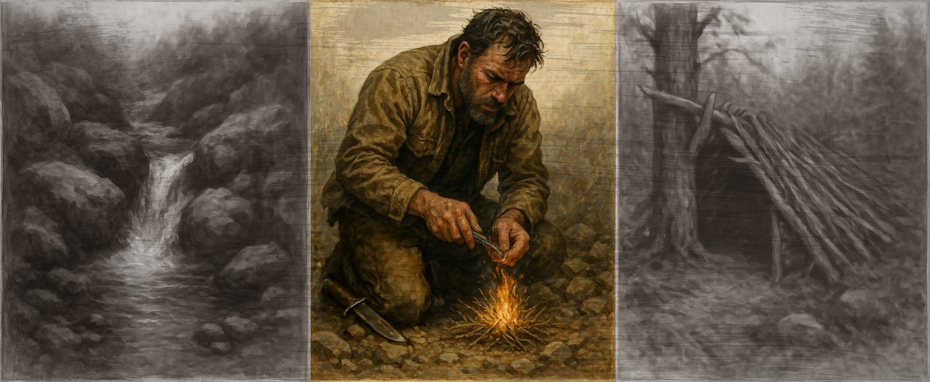Why Expanding Capabilities Matters More Than Collecting Gear
Article by: AP @Tradecraft USA

In the world of personal defense, preparedness, and survival, there’s occasionally a temptation to chase after the latest and greatest tool, weapon, or piece of equipment. Social media is packed with photos of helmets, plate carriers, bug-out bags, trauma kits, firearms, optics, and knives. While all of this equipment has its place, it's important to keep one thing in mind: knowledge and capability outweigh any collection of gear. This article takes a closer look at why building real skills is the smartest investment you can make.
Gear is situational. Skills are transferable.
Gear is tied to specific situations. The right tool for the job changes with the mission, environment, terrain, weather, or threat. A water filter could save your life in a natural disaster, while a rifle might be critical for defense in a grid-down scenario. But skills transcend circumstances. Knowing how to purify water means you can adapt whether you have a filter, bleach, fire, or just sunlight and a plastic bottle. Understanding movement, cover, and concealment helps keep you alive regardless of what type of weapon you’re forced to rely on. Gear is limited by context. Skills are adaptable, turning whatever you have on hand into an asset rather than a crutch.
Gear without skill breeds false confidence.
People love buying gear because it’s tangible, satisfying to look at, and provides an instant sense of readiness. But collecting equipment you're not trained to use is a dangerous trap. A handgun won’t protect you if you can’t operate it under stress. Jumper cables are useless if you don’t know how to connect them properly. Even a first aid kit won’t help if you don’t know how to stop bleeding. Gear supports skills, not the other way around. Without real competence, equipment is just extra weight—and worse yet, it can create a sense of false confidence that leads to poor decisions. True security comes from knowing what to do, how to do it, and why it works—not just owning the tools.
When an emergency strikes, you will only have what's on you.
Crises tend to hit without warning, and you can't carry your entire stockpile of gear with you everywhere you go. When disaster strikes, you’ll be left with your mindset, skills, and whatever tools you have access to at that particular moment. Having the perfect kit is a luxury you rarely get. Adaptability becomes your lifeline, and skills widen your options: starting a fire without matches, filtering water, navigating without GPS, building shelter from natural materials, food sourcing, or turning everyday objects into defensive weapons. Survival isn’t about owning the best equipment—it’s about having the knowledge and confidence to improvise and make the most out of whatever tools and resources are available.
Final Thoughts
While purpose-built equipment enhances skill performance and plays a key role in preparation and readiness, it can also break, get lost, or be inaccessible when you need it most. Your knowledge, mindset, and adaptability can’t be taken from you. Invest in what lasts. Build skills that turn any tool into an asset and any situation into an opportunity. Because when it matters most, it won’t be your gear that saves you—it will be what you know, what you can do, and how fast you can adapt to the unforeseeable and the unpredictable.
**Note – If you would like to be notified when the next article is published, type "NOTIFY ME" in the subject line and email us at admin@tradecraftusa.com**




